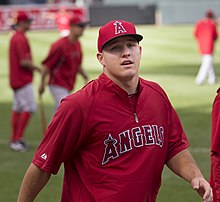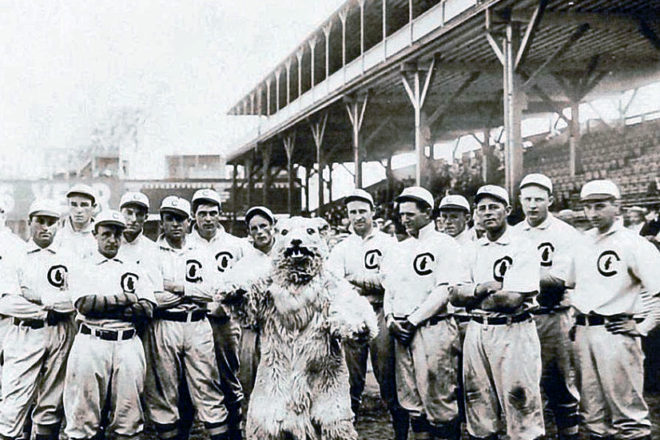Often around this time of year I do a baseball post, in which, as obsolete old men have done since the players began wearing gloves, I more or less lament how the sport is being ever more ruined every year (and I was someone who was already lamenting the at that point still recently lost glory of the game when I was ten. Of course I hadn't seen anything yet). I do this because like all old people I genuinely miss the things that have gone away, like pennant races, a shorter but more intense playoff season, separate leagues, fewer teams, Wrigley Field not having lights, pitchers batting (pitchers pitching, for that matter, for more than 1/2 or 1/3 of the game at most), which make it hard for me to get very enthused about present day baseball. Even the advanced statistical analysis, which I took an interest in when it first emerged in the 80s and 90s, and seems now to constitute the major area of focus among both baseball executives and the sports' remaining fans, has long moved beyond me and seems, in its increasingly oppressive influence on the game as it is played on the field and is organized at the lower professional levels, to be draining much of the life out of it. As I have written elsewhere, I probably would have given up following the sport altogether except that two of my sons (aged 18 and 11) are quite dedicated fans, to the extent that they are 2 of the fifty or so people under age 75 who are still watching the Red Sox games in the last week of the season.** I do find that touching, so I try to watch the games with them when I can, because we won't all be together like this forever. But I don't much enjoy the way the games, or the seasons, play out now at all.
Trout's statistical dominance combined with his strange lack of vividness as a player (I say this as someone who watches, admittedly from an eastern base, a decent amount of American League games, the league in which he has dominated the MVP voting over the past decade, and he has made no impression on me in the games I have watched him other than he has a lot of long boring at bats that end up as walks after your attention has wandered) makes him a most apt face for today's game. Everyone who does talk about him, including me, must always be mindful to emphasize how great he is, but it is always done in a way stripped of any emotional resonance, unless you have evolved to the point where a spectacular WAR can make your eyes well up. Do any fans love him, or for that matter fear, or at least dread him?*** I would imagine some fans who follow his team day in and day out must, but that team (the Los Angeles Angels) does not have a terribly high profile fan base. The reasons for this lack of resonance nationally are I think a combination of factors, many of which derive from the demise of pennant races, which results in a lack of meaningful games outside of the playoffs (which Trout is never in), as well as, if not a complete lack, somewhat more difficulty in establishing rivalries, both on a team and an individual basis. The end of pennant races has also affected the MVP voting, which in the last decade especially has become almost entirely statistics-based (with the increasing sense that it should go almost automatically to the highest ranked player by WAR). This has become so accepted that it is commonplace now to see past selections, such as Willie Stargell in 1979 or Kirk Gibson in 1988, mercilessly ridiculed. At the time however, I don't remember them, and didn't think of them, as being terribly controversial. A 162 game season with a single team in each division making the playoffs really was a lot like following a novel, and as you didn't get a compelling story every year, that made the years you did get one all that much more memorable, and gave a boost to particular players at the center of those drives in the MVP voting that I don't think bothered a lot of fans or people in the game. If Trout has ever had another player as an identifiable rival, it would probably be Miguel Cabrera, who famously was the first triple crown winner in 45 years--an event many fans of my generation thought might never happen again--in 2012, Trout's rookie season, in which he emerged with not only perhaps the greatest rookie season, but one of the greatest seasons, as measured by WAR, of all time by anyone. The modern stat geeks were so carried away with their excitement at the arrival of such a superplayer in the new dispensation that old-fashioned fans who expressed their own excitement at the prospect of a triple crown were savaged as simpletons and know nothings, and all of the professional writers under age 50 or so who wanted to remain relevant, seeing which way the winds were blowing, took up the banner of Trout for MVP, pooh-poohed the triple crown (as well as pitcher wins, and innings pitched, and batting average and unadjusted ERA) as if they were not even worthy of interest, and picked apart Cabrera's game (no speed, negative defensive value) with as much disdain as if they considered him to be about as good as post-2015 Chris Davis. The shock was not so much in the lionizing of Trout but, as always, in the revolutionary zeal with which the old system and its idols were ridiculed and trashed. In 2012 the old guard dominated the MVP voting enough that Cabrera prevailed, getting 22 1st place votes to Trout's 6. The following year, in 2013, Cabrera, though he did not win the triple crown again, actually had slightly better triple crown stats, won the MVP even more handily (23-5 in 1st place votes) despite Trout's again having much higher war and being the subject of another relentless scorched earth campaign in his behalf being carried out by the new guard. After this the old writers were primed and softened up enough that in 2014, with Cabrera declining enough to fall to 9th place in the voting, Trout was elected unanimously...
So this is not the most polished or coherent piece--but it has been two weeks since I've posted, the regular season, which is what I mainly care about now that the playoffs lack legitimacy, is ending this weekend, and I want to move on to edify my readership with my wisdom on other topics...
*They are legitimately great. While he has only led the American League once in any of the traditional triple crown categories (RBIs in 2014 with the less than jaw dropping total of 111), he has finished in the top five in batting average and home runs 4 times each, with a career high of 45 homers last year, and he has finished in the top 4 in slugging percentage every year he has played, topping .600 in each of the past three seasons (he is at .595 with three games left in this truncated season). However he has not really had a season where any of his traditional numbers by themselves would have blown away a newspaper reader of old checking the league leaders throughout the season--no .360+ average or 140+ RBI campaign, for example. Eventually of course he would begin to accumulate huge career totals in the counting stats, move into the upper reaches of the all time lists and so on and be positively judged in that way, which statistics (apart from perhaps home runs) do not seem to be as obsessively monitored and reported now by writers and announcers (as opposed to computers) as they were formerly.
**Tonight was the last home game for the Red Sox. In a terrible season, which saw no fans at the park, and the majority of the team consisting of forgettable, transient players. Yet it was still kind of sad.
***Some players I have dreaded/feared/loathed in the course of my years following baseball include Gary Carter and Steve Garvey (smug, arrogant, abused my team), Dusty Baker (killed my team), Willie Stargell (terrifying, killed my team), Lenny Dykstra, (obnoxiously troublesome, I hated him until he actually got traded to my team, at which point he began immediately became my favorite player), many Yankees of their recent golden age (Jeter, Rivera, Posada, Matsui, Sheffield all inspired various degrees of dread). Barry Bonds, especially in his (presumed) steroid incarnation, was genuinely terrifying, in that you were almost reliant on luck to get him out. My children who are fans find Aaron Judge, who is fortunately for them frequently out of the lineup due to being often injured, to be scary in this regard, that the pathetic Red Sox pitchers are essentially powerless to prevent him from hitting a home run unless he screws it up himself. But they don't feel this way about Mike Trout, they feel that he can be gotten out if properly pitched to, which is not always a given. They used to feel this way about A-Rod as well, who was much less frightening than about five other guys on his Yankees teams, even though overall he was evidently the best player.


.jpg/220px-Miguel_Cabrera_(2011).jpg)
No comments:
Post a Comment